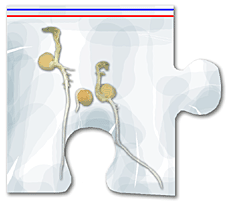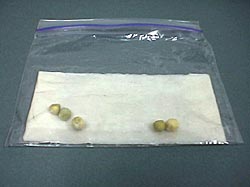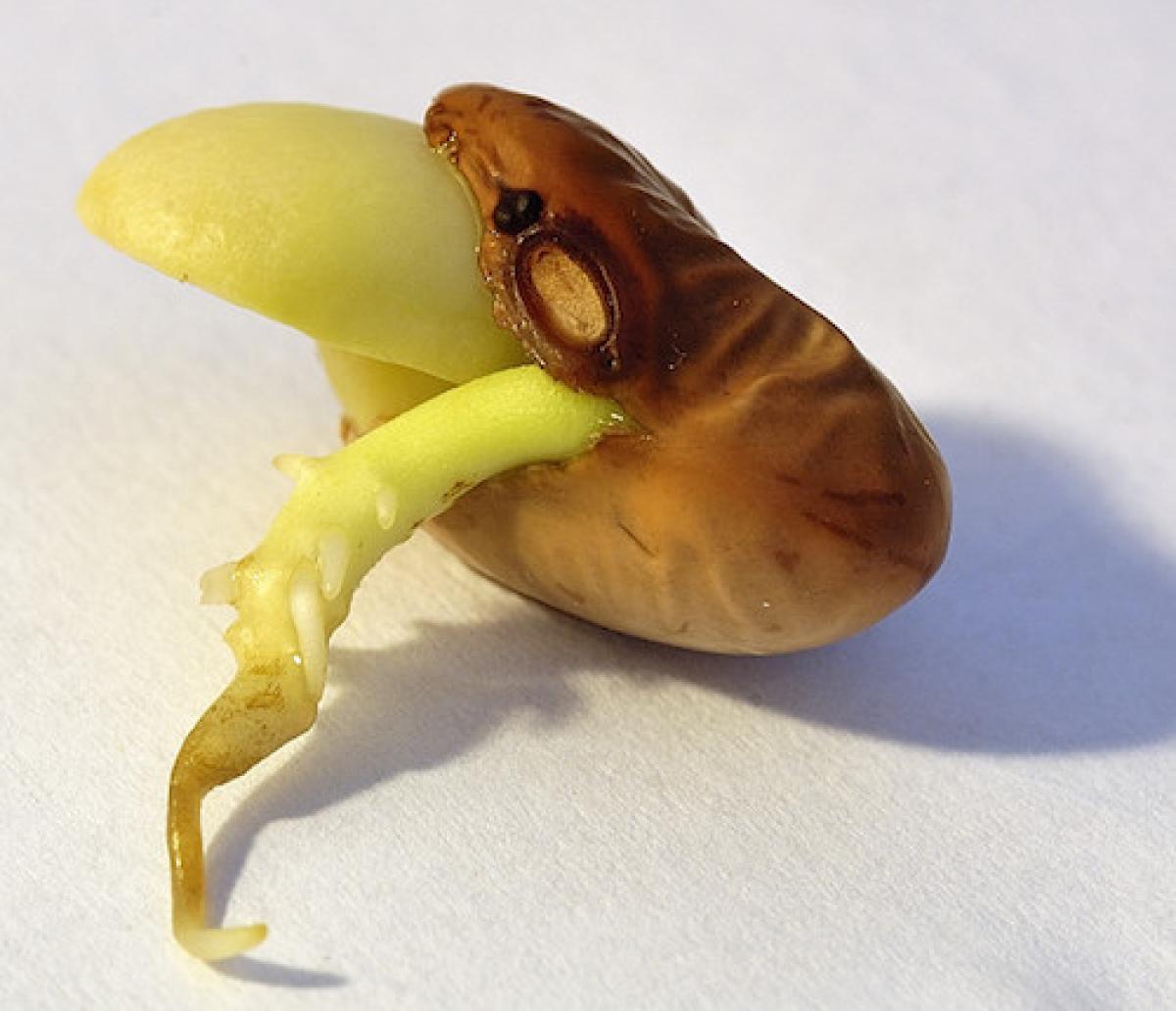
Pocket Seed Viewer
Watch a seed germinate with your own seed viewer! Try this experiment at home or in the classroom. It only needs a few inexpensive materials to put together. Then use the Pocket Seed Data Packet to record your findings and analyze the data.
At the same time - help Dr. Biology with the virtual pocket seed experiment. Look for the differences between different packets and compare the results using the Pocket Seed Data Packet.
| Pocket Seed Data Packet Contents: | Materials for Pocket Seed Viewer: | |
|
|
|
Brief Pocket Seed View Instructions:
These instructions can get you started with your own pocket seed viewer. For more detailed instructions, download the Pocket Seed Packet.
Soak seeds in a cup of water overnight.
Sprinkle water on the paper towel or napkin so it's wet but not dripping.
Put the wet paper towel and the seeds in the sandwich bag, make sure you can see the seeds without opening the bag.

Seal the bag. Place the bag in a warm safe place away from direct sunlight (so it doesn't get too hot). Check it several times a day, open it for a few seconds to give the seeds air. Then seal it to keep the moisture in. If the paper looks dry, open the bag and sprinkle more water, then make sure it's sealed. Soon, you'll see the baby plant start growing and developing!!
One way to keep track of what happens to your seed is to draw it once a day. Make your first drawing of the seed before you soak it.
You can also try another experiment. Prepare one pocket seed viewer following the instructions above. Prepare another with seeds that you didn't soak. When you do the experiment, think like a scientist. Scientists ask themselves questions. Here are some questions you could ask yourself when you do one of these experiments:
Do you think the two kinds of seeds will germinate differently? How will they be different?
After you do one experiment, some other questions may come up. They might be answered by another experiment. Some suggested experiments:
- prepare two identical bags, place one in the dark and one in the light.
- prepare two identical bags. In one of the bags, place the seeds so the radicle faces toward the ceiling. In the other, place them so the radicle faces the floor.
- prepare two identical bags. Once a day, rotate the seeds in one of the bags, let the other bag sit still.
Besides these suggested experiments, try your own. Just remember, test one thing at a time and always prepare a control bag (one that you don't change anything). That way you can compare the two bags to see if you made a difference.
To learn more about seeds and their amazing feats. Visit the Time Traveling Plants article.
Thanks to Elena Ortiz-Barney, Department of Plant Biology, Arizona State University for this experiment.
Additional images via Wikimedia Commons. Germinating bean by Doronenko.
Read more about: Time Traveling Plants
Bibliographic details:
- Article: Pocket Seed Viewer
- Author(s): Dr. Biology
- Publisher: Arizona State University School of Life Sciences Ask A Biologist
- Site name: ASU - Ask A Biologist
- Date published: 7 Oct, 2009
- Date accessed:
- Link: https://askabiologist.asu.edu/content/pocket-seed-viewer
APA Style
Dr. Biology. (Wed, 10/07/2009 - 20:06). Pocket Seed Viewer. ASU - Ask A Biologist. Retrieved from https://askabiologist.asu.edu/content/pocket-seed-viewer
Chicago Manual of Style
Dr. Biology. "Pocket Seed Viewer". ASU - Ask A Biologist. 07 Oct 2009. https://askabiologist.asu.edu/content/pocket-seed-viewer
Dr. Biology. "Pocket Seed Viewer". ASU - Ask A Biologist. 07 Oct 2009. ASU - Ask A Biologist, Web. https://askabiologist.asu.edu/content/pocket-seed-viewer
MLA 2017 Style

Beans are seeds too that can be watered and will germinate.
Be Part of
Ask A Biologist
By volunteering, or simply sending us feedback on the site. Scientists, teachers, writers, illustrators, and translators are all important to the program. If you are interested in helping with the website we have a Volunteers page to get the process started.

